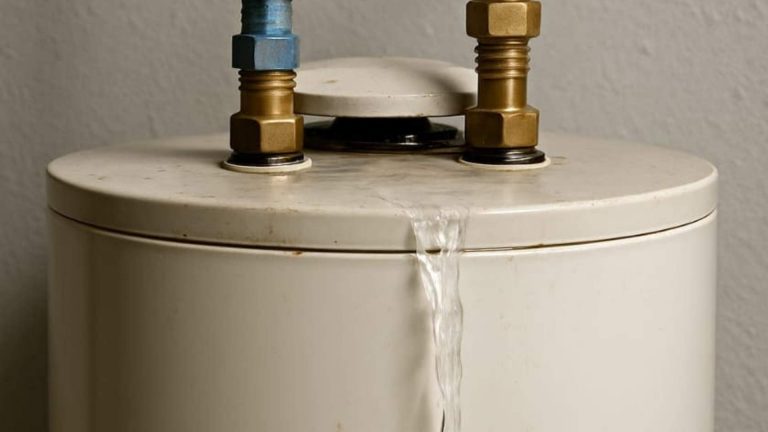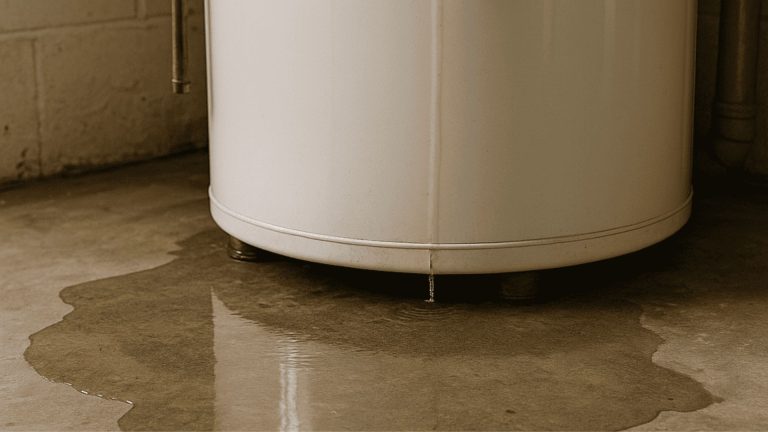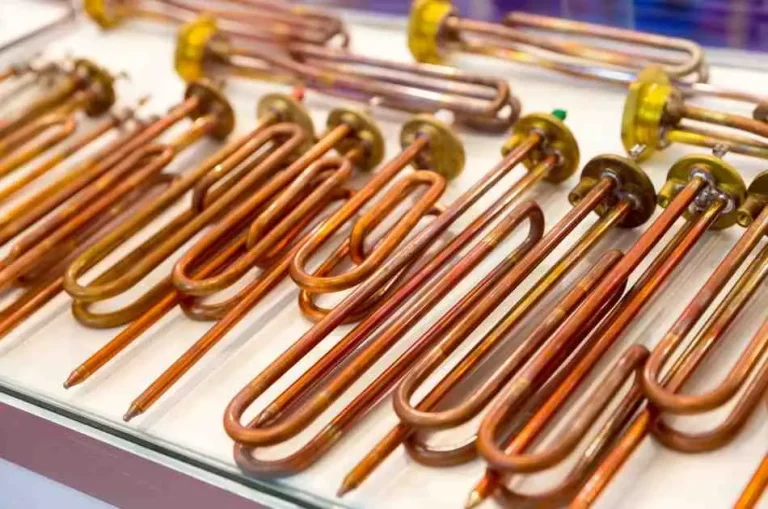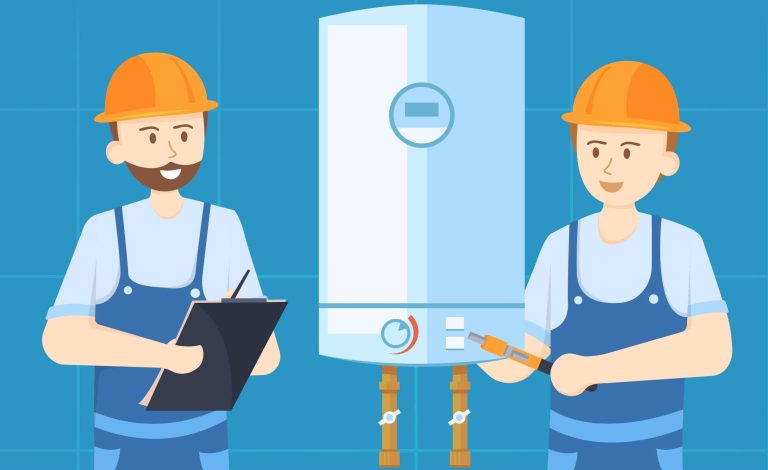Water Heater Leaking? 10 Signs of a Leaking Water Heater
If you’re experiencing water heater leaking like (tiny drips or massive water puddles) this complete guide is your ultimate source. We’ll guide you through the most frequently occurring causes, the best way to spot leaks, and when to replace or repair the unit. Keep yourself informed and secure your hot water system and your home.
What Are the Most Common Causes of Water Heater Leaks?
Leaks in water heaters could be caused by a variety of reasons. The most frequent causes of water heater leaks are an ineffective drain valve or a failing pressure relief valve, or corrosion of the tank. A buildup of sediment in the water heater could make the tank overheat and then weaken, which can lead to leaks.
Another common issue is the excessive pressure of water. If the pressure in the water tank becomes too high, it seeks the weakest spot to escape — usually the seam or valve. In addition, a defective pressure relief valve could fail to relieve the pressure properly and lead to leaks.
What Steps Should You Take If Your Water Heater Is Leaking?
- Shut off your supply of power on the electric heater or the gas supply to the natural gas-powered water heater.
- Turn off the main valve for water to stop water from entering the.
- Find what is the origin of the source to assess the severity.
- Get rid of any pools of water and then check whether there’s a loose connection that could be causing leaks, damages caused by water.
- Get a professional’s help for repair of your water heater should you require.
Quick action against water heater leaking reduces the risk of damage and extends the longevity that your heater will last..
Finding the Leak Source for water heater maintenance and repair
Signs of a leaky water heater can be seen in the pooling of water or rust-colored stains, or the sound of drips around the water heater. Check the surface of the water heater, particularly close to its drain valve, pipes, and the Bottom of the tank. The accumulation of moisture in an area near the Top of the water heater could indicate a problem in the water supply line. Lines that supply water to the heater.
To determine the origin of the water heater leaking, dry the affected area, and find out if the water has returned. Leaks in fittings or pipes may result from the presence of a weak connection, and puddles below the tank could indicate the presence of a larger internal leak.
Where Is the Water Coming From? Leaking from the Top or Leaking from the Bottom
Leaks near those at the high end of the tank generally result in hot water as well as the hot supply line. These pipes can cause corrosion or leaks as time passes because of pressure or a lack of sealing.
If the leaky water comes towards the lower part inside the tank, an internal tank problem or a malfunctioning drain valve is most likely. This type of problem is more difficult to fix and could require a full repair of the water heater..
What Does a Leaking Drain Valve Indicate?
A drain valve is utilized to flush the sediments in the maintenance of the water heater. As time passes, the valve could be damaged or loosen. A leaky drain valve is typically fixed by fitting and replacing it.
But, neglecting it could cause severe damaged water. If the valve isn’t sealing correctly after tightening it, you should replace it right away to keep the heating system in good working order.
Could It Be the Pressure Relief Valve?
A Pressure relief valve (also referred to as valve T&P valve) ensures the proper pressure levels in the heating system. If the valve is leaky continuously, it could mean there’s a problem with the temperature and pressure inside the tank.
The occasional drips that occur during heating cycles are common; however, persistent leaks could indicate an issue with the. Repairing a damaged pressure relief valve is essential to repair a leaky heating element and to avoid risky pressure accumulation.
How Can You Fix a Water Heater Leaking from the Top?
If you notice that your water heater has started leaking from its Top, take a look at the water intake. Broken or untight fittings or pipe fittings are likely to be the cause. Switch off your primary water source and then gently fix or replace any damaged connections.
It is possible to replace parts from a copper water pipe or put on fresh sealant tapes to stop the water heater leaking. Be sure to check for cracks, corrosion, or water around each fitting.
Can a Leaking Water Heater Be Repaired, or Should It Be Replaced?
Repair or replacement will depend on the extent of damage. A leaky valve, pipe, or water line is generally simple to repair. If, however, the tank holding the water heater is damaged or corroded, it’s safer and cost-effective to put in a brand new heater.
An expert’s advice can help determine if you need the full replacement of your water heater or just a minor solution. A proper diagnosis will ensure security and efficiency.
Water Heater Leaking Future Strategy
Conducting regular maintenance of your water heater will help prevent leaks. Clean the tank at least once every six to twelve months to eliminate any sediment. Examine the entire set of valves, which includes those for the tension relief valve and drain valve, for corrosion or wear.
The installation of the water softener will protect your system in areas of low high quality water. Make sure to keep the pressure of the water at a level that is recommended to reduce stress to the equipment. Regular inspections can be very beneficial in preventing water damage.
What Is the Average Lifespan of a Water Heater?
The typical water heater lasts between 8-12 years. A proper maintenance program, which includes the inspection of the pipes, valves, as well as flushing out water from the hot tank, will extend the life.
If your heater is old or has issues, or you observe signs of leaks or corrosion, you may need to get a new water heater. It is important to be proactive in order to keep the quality of your water heater and help you save money.
Things to Remember About Water Heater Leaks
- Leaks typically result from valves, pipes, or water heater tanks.
- Determine if the issue is leaks at the Bottom.
- Check regularly the drainage valve, pressure relief valve, as well as fittings on a regular basis to avoid leaks from the water tank.
- Always turn off the main power and power source prior to performing repairs.
- Regular maintenance for your water heater reduces the risk of leaks.
- A heating element that is hot and leaks water could require a professional inspection.
- Do everything you can to prevent the damage caused by water and disruption of service.
- Knowing the most common causes for leaks in your water heater will help extend the lifespan that your heater will last..
water heater leaking is a serious issue. If you are aware and vigilant by staying on Top of the latest information and trends, you will keep the hot water heating system in a timely manner and have a consistent source of cold water converted to hot water whenever you require it the most.





One Comment